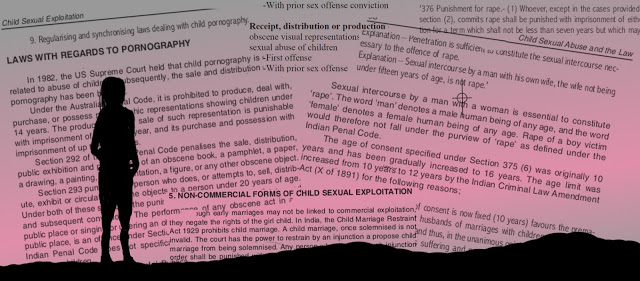
In the UK there is no legal requirement to report any crime, only a moral and ethical duty.
Child sexual exploitation is a form of child abuse, often characterised by a power imbalance in favour of the perpetrator, including but not limited to age, economic power and resources; sexual identity, physical and mental ability or status. A male or female of 16 or 17 can become the victim of a perpetrator who may be male or female, acting as part of an organised group as well as a lone opportunist as a one-off incident or a series of incidents over weeks, months or years. Fellow young people also have the capacity to be perpetrators. The abuse may appear to be consensual but still qualify as abuse, particularly where the young person is underage or especially vulnerable, possibly even occurring without prior knowledge of the victim, such as in cases of “revenge porn” and sexual images shared around peers etc. Abuse can involve both contact and non-contact sexual acts and non-contact sexual activity. In a legal context, CSE comprises a range of offences and criminal behaviour. Legislators recognise the impact of CSE but don’t always do enough to tackle the problem.
In the UK, the legal age of consent is 16. A child under 13 cannot legally consent to any sexual activity, with specific protections in place for children of this age. But is this fair or does it imply that certain types of children are more worthy of protection from abuse? Legislation considers teenagers of similar ages mutually agreeing to sexual activity and will not prosecute. Factors influencing consent such as physical or financial coercion and the influence of drugs should not be considered where the child is legally unable to give consent. Rape is defined as penetration without consent of the victim, so only men can be charged with the act of rape but this does not mean that women are unable to be charged for offences, and may be charged with offences such as sexual coercion, assault and assault by penetration- however this can vary by country in the UK.
This abuse can occur in many forms and is rising, for example between 2009 and 2014 there was an estimated 959 accusations of inappropriate teacher-student relationships, with only 254 of these cases involving various levels of police charges. In 2001 the law was changed to protect under 18s from adults in a position of trust, regardless of the age of consent being set at 16. In Greater Manchester alone there was a fivefold increase of reported CSE cases in 2016, and whilst sadly it is possible that exploitation of children is increasing, the increased awareness of CSE within communities and frontline services can only be a positive.
In 2014 The Children’s Society published an enquiry into the effectiveness of legislation in tackling CSE and trafficking, finding that an insufficient number of cases are dealt with by the appropriate social and legal bodies. The failings are simply summarised as ineffective legislation such as the Sexual Offences Act 2003, inadequate understanding of CSE and a lack of support for young people at all stages of the process.
Paired with lenient sentences and shocking societal attitudes, is it any wonder that this complex crime is happening so easily under our noses with few repercussions for perpetrators but severe consequences for victims?
